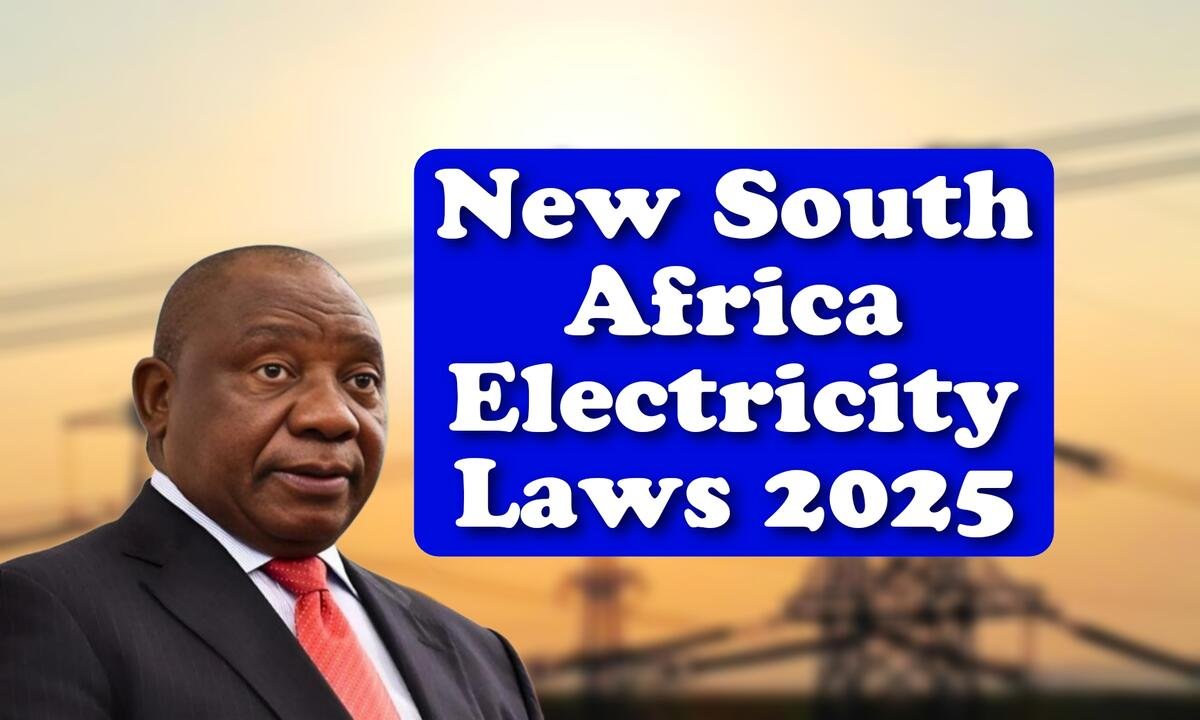South Africa Electricity Laws 2025 :Big changes are certain to wash over the electricity sector as the laws for 2025 will officially come into effect. These will address the ongoing energy crisis, make supply more reliable, and open avenues for the private sector to participate in electricity generation.
After numerous years of rolling blackouts and weak infrastructure, the government now tightens regulations on one hand and makes room for innovations on the other hand. Here is what you need to know about these new electricity laws:
Key Changes In The 2025 Electricity Laws
- Unrestricted Power Generation Activities: Private companies and municipal authorities can generate and supply electricity without long delays for national licenses. This would also include renewable energy projects such as solar, wind, and small hydro plants.
- Strict Load Shedding Protocols: Eskom and local suppliers would be required to adopt a load shedding schedule that is standardised across the board and transparent. Emergency outages must be communicated at least two hours in advance unless sudden failure in the system occurs.
- Feed-In Tariffs for Households : Homeowners with solar panels will now be able to sell excess electricity back to the grid under a fixed sellback, feed-in tariff. This will hopefully encourage more residential renewable installations and relieve pressure on the national grid.
- Energy Efficiency Regulations : Businesses and large buildings are to be subjected to new energy efficiency standards, including compliance with LED lighting, HVAC systems, and energy monitoring. Non-compliance will be punishable.
- Independent Power Purchaser (IPP) Expansion : A new independent electricity trading entity will preside over contracts between suppliers and buyers to keep prices in check and curtail monopoly control.
Why These Changes Are Important
For years, South Africans have had to bear the brunt of an erratic electricity supply and ever-increasing costs. The new laws seek to instill much-needed accountability and private investment so that energy sources can be diversified and reduced to being dependent on Eskom alone.Energy experts opine that opening up for competition in the sector could ensure a more stable supply and diminished costs in the long tymey, especially if renewable energy production is skyrocketed.
How This Affects You
- For Households: If you have or plan to install solar panels, you can now go on paying parties for the excess electricity they produce.
- For Businesses: Getting commercial buildings to meet energy efficiency standards will be mandatory by law, but could also reduce operational costs.
- For All Citizens: Power reliability might be enhanced by a more consistent load-shedding schedule and quicker project approvals.
Also Read: SRD Grant R370 August 2025: Payment Schedule And Speedy Payment Tips
